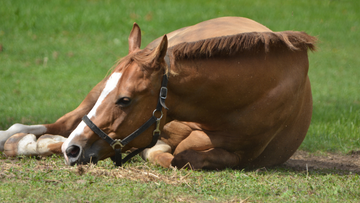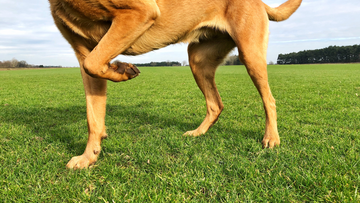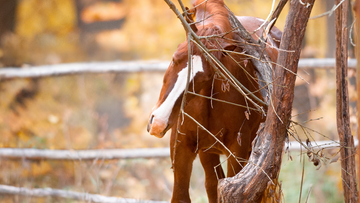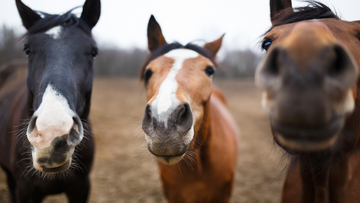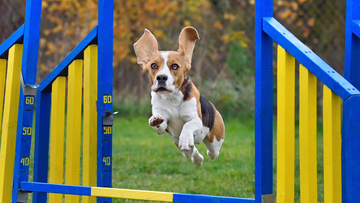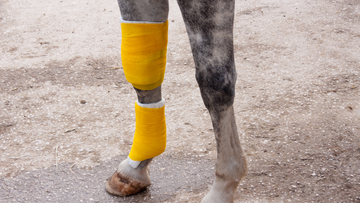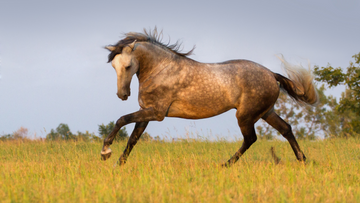 Commercial fertilizers may provide nutrition for plants, but they contain harmful chemicals which are toxic to dogs. When sprinkled or sprayed over a lawn or garden, it is often easy for a dog to come in contact these dangerous chemicals.
Organic fertilizers sound safe. But surprisingly, many of them are more dangerous. Organic, or “natural,” fertilizers often contain various “meals” leftover in the farming or meat industries. These products, such as bone meal, blood meal, feather meal and fish meal, are very attractive to dogs, but also very unhealthy for their digestive systems.
Commercial fertilizers may provide nutrition for plants, but they contain harmful chemicals which are toxic to dogs. When sprinkled or sprayed over a lawn or garden, it is often easy for a dog to come in contact these dangerous chemicals.
Organic fertilizers sound safe. But surprisingly, many of them are more dangerous. Organic, or “natural,” fertilizers often contain various “meals” leftover in the farming or meat industries. These products, such as bone meal, blood meal, feather meal and fish meal, are very attractive to dogs, but also very unhealthy for their digestive systems.
Blog
Fertilizer Danger in Dogs
Fertilizer ingestion is common with small animals. Pets, especially dogs, find the contents of fertilizers quite tasty. Often, they'll tear the bags open to ingest the contents. When our canine family members come in contact with fertilizer products, the effects can range from mild to severe. Fertilizers can be extremely toxic to dogs. Depending on the length of time of contact and how the fertilizer poisoning occurred, complications may include oral burns and stomach irritation. Dogs are often attracted to grass that contains fertilizer, so it's important for owners to be extremely cautious in these situations.
 Commercial fertilizers may provide nutrition for plants, but they contain harmful chemicals which are toxic to dogs. When sprinkled or sprayed over a lawn or garden, it is often easy for a dog to come in contact these dangerous chemicals.
Organic fertilizers sound safe. But surprisingly, many of them are more dangerous. Organic, or “natural,” fertilizers often contain various “meals” leftover in the farming or meat industries. These products, such as bone meal, blood meal, feather meal and fish meal, are very attractive to dogs, but also very unhealthy for their digestive systems.
Commercial fertilizers may provide nutrition for plants, but they contain harmful chemicals which are toxic to dogs. When sprinkled or sprayed over a lawn or garden, it is often easy for a dog to come in contact these dangerous chemicals.
Organic fertilizers sound safe. But surprisingly, many of them are more dangerous. Organic, or “natural,” fertilizers often contain various “meals” leftover in the farming or meat industries. These products, such as bone meal, blood meal, feather meal and fish meal, are very attractive to dogs, but also very unhealthy for their digestive systems.
 Commercial fertilizers may provide nutrition for plants, but they contain harmful chemicals which are toxic to dogs. When sprinkled or sprayed over a lawn or garden, it is often easy for a dog to come in contact these dangerous chemicals.
Organic fertilizers sound safe. But surprisingly, many of them are more dangerous. Organic, or “natural,” fertilizers often contain various “meals” leftover in the farming or meat industries. These products, such as bone meal, blood meal, feather meal and fish meal, are very attractive to dogs, but also very unhealthy for their digestive systems.
Commercial fertilizers may provide nutrition for plants, but they contain harmful chemicals which are toxic to dogs. When sprinkled or sprayed over a lawn or garden, it is often easy for a dog to come in contact these dangerous chemicals.
Organic fertilizers sound safe. But surprisingly, many of them are more dangerous. Organic, or “natural,” fertilizers often contain various “meals” leftover in the farming or meat industries. These products, such as bone meal, blood meal, feather meal and fish meal, are very attractive to dogs, but also very unhealthy for their digestive systems.





